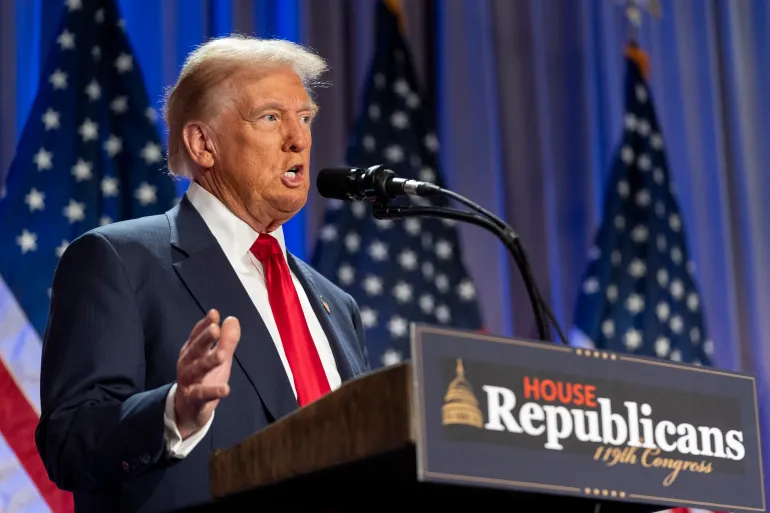In a recent campaign rally, former President Donald Trump declared his intentions to institute severe tariffs on imports from Mexico, Canada, and China if he were to be re-elected in the 2024 presidential election. This declaration from Trump exemplifies his commitment to favoring American manufacturing, reducing the trade deficit, and other core aspects of his political strategy.
Revisiting Trade Relations with Neighboring Nations
This is a stark departure from the cooperative framework established under a signature achievement of his administration, that is, the United States-Mexico-Canada Agreement. While USMCA is designed to modernize trade between the three countries, President Trump now argues stricter measures are necessary to protect U.S. industries from what he calls “unfair trade practices.”
He criticized Mexico for what he claimed was inadequate action on immigration and drug trafficking and also accused Canada of unfair dairy and timber trade policies. These proposed tariffs could escalate tension between both countries, which could even put hundreds of billions of dollars in annual trade at risk.’
Harshening stance on China
China continues to be a key part of Trump’s trade policy. The administration reaffirmed the long-standing view that tariffs are an essential mechanism in thwarting what the former president describes as China’s “economic aggression.” During his first term, Mr. Trump slapped billions of dollars in tariffs on Chinese goods, claiming intellectual property theft and trade imbalances.
In his latest remarks, Trump promised to take these measures further by raising the tariffs on an even wider variety of goods. He said this would make companies more likely to move their manufacturing facilities to the United States for jobs and homegrown production.
Economic and Political Impact
Critics of Trump’s tariff plan say it will hurt U.S. consumers who will pay for imported goods. Economists are even warning that retaliatory moves by Mexico, Canada, and China will harm American exporters in agriculture and technology, among others.
More:How Long Will the Crisis in Gaza Continue? Can the UN States Save the Day?
‘On the other side of the political barricade, proponents believe the tariffs will give American manufacturing a much-needed boost and reduce dependency on foreign products. This proposal is going to resonate with voters in industrial regions who felt sidelined by globalization and previous trade policies.’
Future Outlook
‘As election season approaches in 2024, Trump’s tariff pledge is likely to be a cornerstone of his economic policy agenda. His approach highlights the stark contrast between his vision and that of other candidates who favor multilateral trade agreements and globalization.
‘In reality, the immediate impact of such levies is inconclusive, but it is certain to disrupt the dynamics of global trade. Trump’s campaign rhetoric indicates that his administration would take a hardline stance on trade, prioritizing American economic interests above all else if reelected.’















